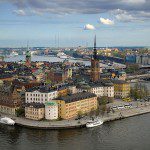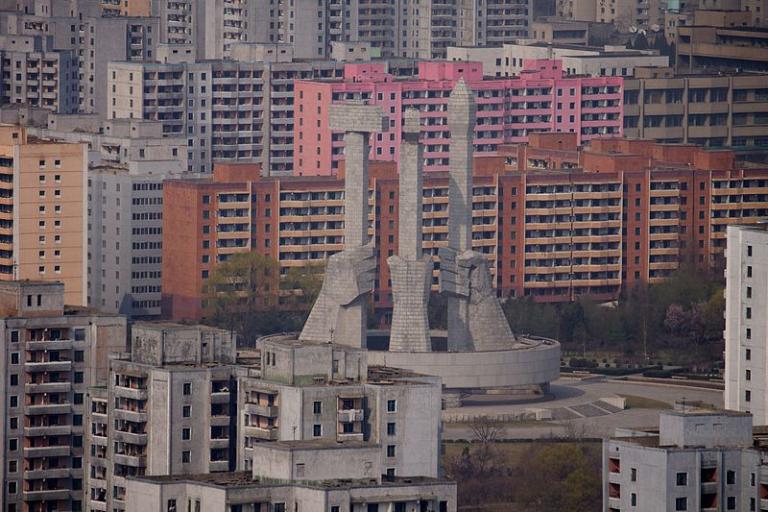To begin with: a pet peeve. Many years ago, I read a book called A Mother’s Ordeal, by Steven Mosher. The topic was forced abortion in China, told from the vantage point of someone who was both perpetrator, eyewitness to babies being aborted just as their mothers went into labor, and victim — having later come to the U.S. with her husband on his student visa, a pregnancy brought demands by the Chinese government to abort, and, ultimately, a successful asylum claim. The narrator also experienced the famine as a child and the Cultural Revolution as a teenager, and, if memory serves, was sent to the countryside and clawed her way back.
In the introduction, Mosher says this (paraphrased): “I helped Chi An in her asylum claim, and she told me her life story in detail. To better tell the story, I chose to write in the first person.” In the year 2015? You bet it’d be “by Chi An with Steven Mosher” — or even more extreme, leaving Mosher’s name to be thanked in the acknowledgements. And I’d like to see, as a matter of ethics, full disclosure about how much writing the purported author actually did, vs. simply sitting for interviews with a ghostwriter. In this case, it’s not terribly important, but in the case of a politician, I do think it matters — when they write a book with their name on the cover, they are making claims about their abilities to write, and to formulate their ideas.
But back to Joseph Kim (whose co-writer at least gets his name on the cover). It’s the story of his life in North Korea, before escaping to China and ultimately arriving in America. It won’t surprise you, if you’re reasonably well-informed about world affairs, to hear that he suffered through years of famine, first with his family moving to progressively worse living conditions (with a brief respite during a modest and temporary economic recovery), then with homelessness interspersed with stays with relatives or friends, until they kicked him out as one more mouth to feed. His father died of cirrhosis (with no medical treatment of any kind available) compounded by starvation. His mother was in and out of his life, as she tried to earn a living with various trading schemes, and ultimately by trading goods smuggled from China, but inevitably lost money on deals gone bad. One of those deals? Selling his treasured sister to a Chinese broker, for an unknown fate — that of an enslaved “wife” to a poor villager in the best case, far worse otherwise. He describes learning to beg, then learning that begging doesn’t produce enough food to stave off starvation, and learning to steal — off merchants’ stalls, then as a pickpocketer, from farm fields, and ultimately breaking and entering with a group. He lands in an “orphanage” — where homeless kids are locked away, used as free labor with woefully insufficient food, but later escapes while on a work detail, only to track down his mother and find her on the verge of starvation, so he returns to supporting her by theft. Later, she recovers enough strength to return to smuggling but is caught and imprisoned, and here, at the age of 15, Joseph makes a decision, on impulse, to cross to China himself, to attempt to earn money to rescue his mother. And throughout he describes that dog-eat-dog mentality of North Koreans, along with additional petty cruelties such as the government requiring its people to “donate” scrap metal for yet more statues of the Great Leader, even if that means surrendering their cooking pots.
Now, the region of China which directly borders North Korea is populated, to a large degree, by an ethnic Korean minority who, in fact, speak Korean, so he is able to go from house to house, and town to town, begging. Back in North Korea, he had been told that Christians, who can be found in buildings with crosses on them, are willing to give money to strangers, so he goes from church to church, collecting funds, but he eventually is taken in and stays with a “grandmother” who takes care of him. He is then, out of the blue, offered the chance to go to America, which occurs by means of going to a consulate, and after 4 months, arriving in the U.S. After endless details on his life in North Korea, the story of how he ended up in the U.S., and how he made it through his years in the U.S., as an older teen and a young adult, is oddly brief. Given that most North Korean refugees who make it out of China, do so through an “underground railroad” via Thailand and end up in South Korea, his arrival in the U.S. instead merited an explanation; even if at the time it was a bit mysterious to him as well, there was no reason not to provide the context later. Really, it felt a bit as if his ghostwriter just gave up the ghost and he completed the remainder of the text himself. He also discusses his conversion experience in China, but he was brought to the U.S. by a secular group (LiNK – Liberty in North Korea) and there’s no indication of whether Christianity continued to be a part of his life once he arrived here.
I’ve read a number of Holocaust biographies and memoirs, and I have the impression that memoirs of escapees from North Korea (and Kim’s book is one of a growing number) are, in some way, the “Holocaust memoir” genre for the next generation. I’ve read a number of these, too; the stories themselves are gripping, and page-turning, even in cases where the writing isn’t as artful as it might be. (By the way: Anne Frank in hiding in a “secret annexe”? In Clara’s War, teenager Clara Kramer, along with a dozen others, lived in a small basement, not much bigger than a crawl space, under their protector’s home in Poland.) I find it extraordinary, the degree to which human beings can survive even the most inhumane conditions — starvation, brutality — and always wonder, is there something built into each one of us that pushes us towards survival, even in these most extreme circumstances, and it was just luck, or skill, that gave survival to some but not others, or are there some who have, and others who don’t have, this drive to keep pushing forward? And would I have had that drive?
But beyond that: with respect to Holocaust memoirs, the purpose in publishing one after the next is, beyond simply preserving the historical record, to continue to affirm the “never again” commitment. But with respect to North Korea: once we know what has happened, and what continues to happen, what responsibility do we as outsiders, as Americans, have? And many leaders who are eager to dismiss a call to action simply say, “that was then; it’s over with, the North Koreans will behave now, or can be trusted if we just extend a hand” or come up with even odder rationales such as Jimmy Carter’s from earlier this year.
(Oh, and, yes, I know, it’s not exactly light beach reading. But I also finished reading Carly Fiorina’s recent book, which I’ll tell you about next, and also post a few more pictures, and tell you why Grand Haven is a great vacation spot, but not so great that you all should stampede here and bump up the price of rentals.)













